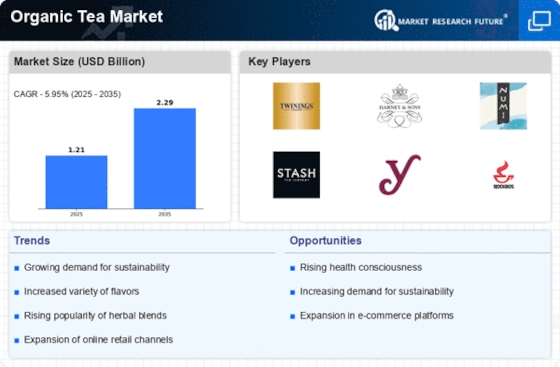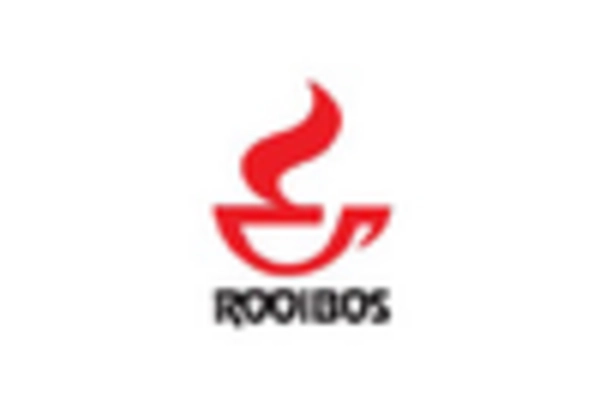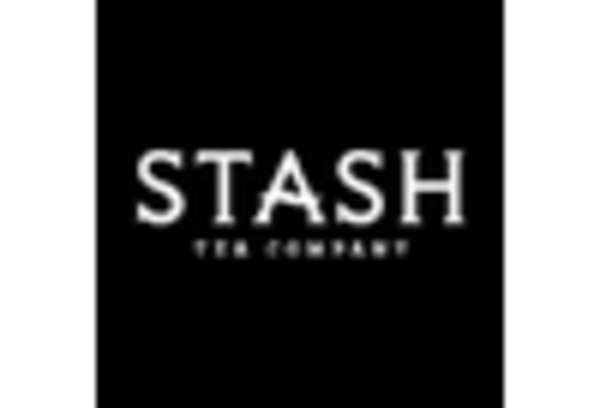Market Analysis
In-depth Analysis of Organic Tea Market Industry Landscape
The Organic Tea market represents a dynamic and expanding sector within the broader beverage industry, driven by evolving consumer preferences towards healthier and environmentally conscious choices. One key factor influencing the market dynamics is the increasing demand for organic products. As consumers become more health-conscious and environmentally aware, there is a growing interest in organic tea, which is cultivated without synthetic pesticides or fertilizers. This shift in consumer behavior has led to a surge in demand for organic tea, influencing market growth and dynamics.
Health considerations play a significant role in shaping the market dynamics of the Organic Tea market. Organic tea is often perceived as a healthier option due to the absence of synthetic chemicals in the cultivation process. Consumers are increasingly seeking beverages that offer not only unique flavors but also health benefits. The perception that organic tea is free from harmful residues and potentially provides higher nutritional value has contributed to its popularity, driving market dynamics.
Environmental sustainability is a critical factor influencing the market dynamics of Organic Tea. Organic farming practices prioritize soil health, biodiversity, and conservation, aligning with the growing eco-consciousness among consumers. The emphasis on sustainable agriculture practices in the cultivation of organic tea has not only attracted environmentally conscious consumers but has also led to a positive impact on market growth as a whole.
The Organic Tea market is characterized by the diversity of tea varieties and blends. From traditional green and black teas to herbal and specialty blends, organic tea offerings cater to a wide range of consumer preferences. The market's dynamism is reflected in the continuous innovation and introduction of new flavors and combinations, keeping pace with evolving consumer tastes and preferences.
Economic factors also contribute to the dynamic nature of the Organic Tea market. While organic products are often associated with a premium price, increased consumer demand and economies of scale have led to more competitive pricing. As the market matures, the affordability of organic tea has improved, making it more accessible to a broader consumer base and influencing market dynamics.
The role of technology in organic tea cultivation and processing is another factor shaping market dynamics. Advancements in sustainable and organic farming practices, as well as innovative processing methods, contribute to the overall quality and appeal of organic tea products. Technology helps in maintaining the integrity of organic standards, ensuring that the tea retains its organic certification and meets consumer expectations.
Regulatory considerations and certifications also play a pivotal role in shaping the dynamics of the Organic Tea market. Clear and accurate labeling, along with certifications such as USDA Organic or EU Organic, is crucial for establishing consumer trust. Changes in organic certification standards or regulatory frameworks can impact market dynamics by influencing manufacturing processes and marketing strategies.
Competition among key players is a driving force in the Organic Tea market. As consumer awareness grows, companies are vying for market share by introducing new organic tea products, enhancing existing formulations, and investing in marketing campaigns. Brand reputation and trust in the organic certification process become influential factors that contribute to market dynamics, prompting companies to differentiate their products and create a competitive edge.


















Leave a Comment